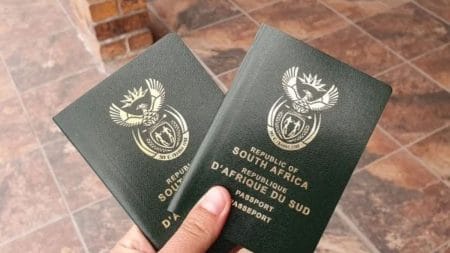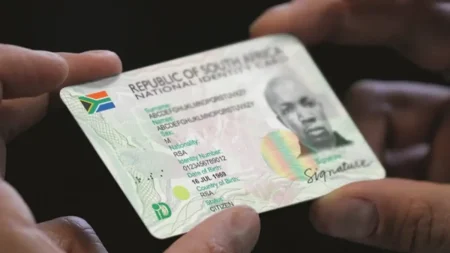Registering a birth is a critical step that gives a child legal recognition and access to essential rights such as healthcare, education, and social grants. In South Africa, unmarried mothers often face concerns about how to register a birth without the father’s presence or consent. Fortunately, the law allows mothers to register a birth even if the father is absent, unknown, or unwilling to participate in the process.
This article provides a step-by-step guide on how to register a birth without the father, the legal rights of unmarried mothers, and how to address potential challenges.
Understanding the Birth Registration Process in South Africa
In South Africa, the Department of Home Affairs (DHA) requires parents to register a birth within 30 days of the child’s arrival. This process ensures that the child is legally recognized and can access important services. Failure to register a birth within this period may result in a more complex late registration process.
Can an Unmarried Mother Register a Birth Without the Father?
Yes, the Births and Deaths Registration Act allows unmarried mothers to register a birth without including the father’s details in cases where:
- The father is unknown.
- The father refuses to acknowledge paternity.
- The mother chooses not to include the father’s name.
However, if the father wishes to be included on the birth certificate, he must be physically present at Home Affairs to sign the registration documents.
Steps to Register a Birth Without the Father
1. Visit the Department of Home Affairs (DHA)
To register a birth, the first step is to go to your nearest Home Affairs office. If you gave birth at a hospital, DHA officials might be available on-site to assist with registration.
2. Bring the Required Documents
To successfully register a birth, you need the following:
- Mother’s ID book or Smart ID card
- Proof of birth (issued by the hospital or clinic)
- Completed DHA-24 form (Birth registration form)
- Affidavit stating that the father is unknown or absent (if required)
If you do not have an ID, you may need to go through the late registration process, which requires additional verification steps.
3. Complete the Birth Registration Form (DHA-24)
The DHA-24 form asks for details about the child, including:
- Full name
- Date of birth
- Place of birth
- Mother’s details (ID number, full name, and residential address)
Since the father is not involved, his section can either be left blank or supplemented with an affidavit explaining the situation.
4. Submit an Affidavit (If Required)
If Home Affairs requests an affidavit, the mother must provide a sworn statement explaining why the father’s details are not included. This affidavit must be signed at a police station or by a commissioner of oaths.
5. Receive the Birth Certificate
Once all documents are submitted, DHA will process the application. The birth certificate is usually issued on the same day, but in some cases, further verification may cause delays.
Types of Birth Certificates for Unmarried Mothers
In South Africa, Home Affairs issues two types of birth certificates:
Unabridged Birth Certificate (Full Birth Certificate)
- Includes both parents’ details (if available).
- Required for passports, travel, and official applications.
Abridged Birth Certificate (Shortened Version)
- Includes only the child’s and mother’s details.
- Suitable for basic applications like school enrollment.
Since 2013, Home Affairs only issues unabridged birth certificates.
Related: How Long Does It Take to Get a South African Unabridged Birth Certificate?
What If the Father Wants to Be Added Later?
If the father was not included at birth but later wants to be recognized, he can apply for an amendment of birth registration by:
- Providing proof of paternity (e.g., a DNA test if required).
- Completing a DHA-168 form to update birth records.
- Visiting Home Affairs with the mother to officially include his details.
Legal Rights of Unmarried Mothers in South Africa
Unmarried mothers have full legal rights to register a birth alone, as protected by the Children’s Act (Act No. 38 of 2005). The law ensures that a mother can:
- Register a birth without the father’s consent.
- Have sole parental responsibilities if the father is absent.
- Apply for social grants and benefits on behalf of the child.
If the father disputes paternity, he may request a DNA test through the court.
Challenges Unmarried Mothers Might Face
While the law allows a mother to register a birth without the father, she may encounter challenges such as:
- Home Affairs staff requesting the father’s details (even when unavailable).
- Delays in processing the birth certificate.
- Difficulties in obtaining social grants due to registration issues.
How to Overcome These Challenges
- Know your rights – You have the legal right to register a birth alone.
- Seek legal assistance – Legal Aid South Africa can help if Home Affairs refuses registration.
- Apply early – Registering within 30 days prevents complications.
Frequently Asked Questions (FAQs)
Q: Can I register a birth without an ID?
- If you do not have an ID, you must first apply for one before registering your child. A late birth registration may require additional affidavits and proof of birth.
Q: Will my child take my surname if the father is not included?
- Yes, the child will automatically inherit the mother’s surname if the father is not listed on the birth certificate.
Q: Can the father claim custody if he is not on the birth certificate?
- Yes, but he would need to legally apply for parental rights through the Children’s Court.
Q: What if Home Affairs refuses to register a birth without the father?
- If you face difficulties, seek assistance from Legal Aid South Africa or a social worker.
Final Thoughts
The process to register a birth without the father is straightforward in South Africa. By following the correct steps and understanding your rights, you can ensure that your child receives a birth certificate without unnecessary complications. If you face any challenges, know that legal support is available to assist you in securing your child’s legal identity.
Source: Register birth










